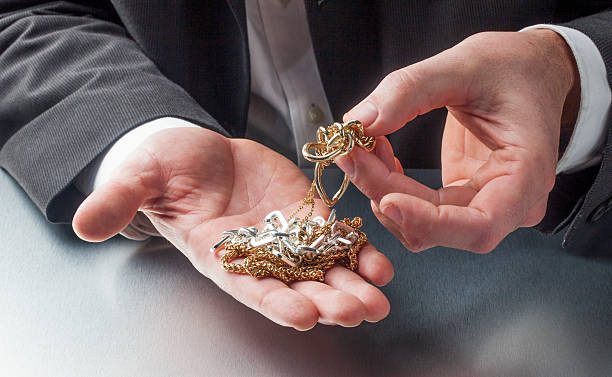Sell your gold can be a great way to get extra cash, but it’s important to make sure you’re getting the best price. With the right knowledge and preparation, you can turn your gold into a valuable asset. This guide will help you navigate the process step by step.
Understanding the Gold Market
The gold market is influenced by supply and demand, global economics, and geopolitical events. Gold prices can change daily, so it’s essential to stay updated. You can check the current market price of gold online or through financial news channels.
Gold is measured in troy ounces, and its purity is expressed in karats. The higher the karat, the purer the gold. Common karat values include 24K (pure gold), 18K, and 14K. The market price typically reflects the value of 24K gold, so lower-karat gold is priced accordingly.
Types of Gold and Their Value
Not all gold is equal. Different types of gold have different values:
- Gold Jewelry: The value depends on the purity (karats), design, and condition.
- Gold Coins: Coins are valued for both their gold content and collectible worth. Rare coins can fetch higher prices.
- Gold Bars and Bullion: These are valued based on their weight and purity, making them easier to price accurately.
- Scrap Gold: Old or broken gold items can still have significant value based on their gold content.
Knowing what type of gold you have will help you estimate its worth
Preparing Your Gold for Sale
Proper preparation can make a big difference in the price you receive. Follow these steps:
- Sort Your Gold: Separate gold by type and purity. Group similar items together.
- Clean Your Gold: Gently clean your gold items to remove dirt and tarnish. Use a mild soap and warm water, avoiding harsh chemicals that could damage the gold.
- Weigh Your Gold: Use a digital scale to measure the weight accurately. Make sure to account for non-gold elements in jewelry, such as stones or clasps.
- Assess the Condition: Note any damages or unique features, as they may affect the value.
Choosing the Right Buyer
Finding a trustworthy buyer is crucial to getting the best price. Here are your options:
- Gold Dealers: Specialized in buying gold and often offer competitive prices.
- Pawn Shops: Convenient but may offer lower prices than gold dealers.
- Online Gold Buyers: Provide quick quotes and payments but require shipping your gold.
- Jewelry Stores: Some stores buy gold jewelry, especially if it’s in good condition.
- Private Buyers: Collectors or individuals may pay more for unique items.
Research potential buyers thoroughly. Check reviews, ratings, and credentials to ensure they are reputable.
Getting the Best Price
Maximizing the value of your gold involves negotiation and smart decision-making:
- Get Multiple Quotes: Visit several buyers to compare offers.
- Understand the Fees: Some buyers charge fees for appraisal or melting. Clarify these costs upfront.
- Negotiate: Don’t hesitate to negotiate for a better price, especially if you have a strong understanding of your gold’s value.
- Time Your Sale: Gold prices can fluctuate. Selling when prices are high can significantly increase your profit.
Selling Gold Options
Selling Gold Online
Online gold buyers can be convenient and offer competitive prices. The process typically involves:
- Requesting a Kit: The buyer sends a shipping kit for your gold.
- Shipping Your Gold: Pack your gold securely and send it via insured mail.
- Receiving a Quote: The buyer evaluates your gold and offers a price.
- Accepting or Declining: If you accept, payment is processed. If not, your gold is returned.
Always use a buyer that provides insurance for your shipment to protect against loss or theft.
Selling Gold Locally
Selling locally allows you to interact directly with the buyer and receive immediate payment. To sell locally:
- Visit multiple buyers in your area.
- Bring documentation, such as receipts or certificates of authenticity, if available.
- Request a written quote from each buyer.
- Compare offers before making a decision.
Taxes and Legalities
Selling gold may have tax implications. In many countries, profits from selling gold are considered capital gains and may be taxable. Check your local tax laws to understand your obligations.
Additionally, ensure your gold is not stolen or counterfeit. Some buyers may require identification and proof of ownership to complete the sale.
Conclusion
Selling gold for the best price requires understanding the market, preparing your gold, and choosing the right buyer. Whether you sell online or locally, taking the time to research and compare offers can maximize your returns. Always stay informed about taxes and legalities to ensure a smooth transaction.
With this guide, you’re now equipped to sell your gold successfully. Start the process with confidence and turn your gold into cash today!
